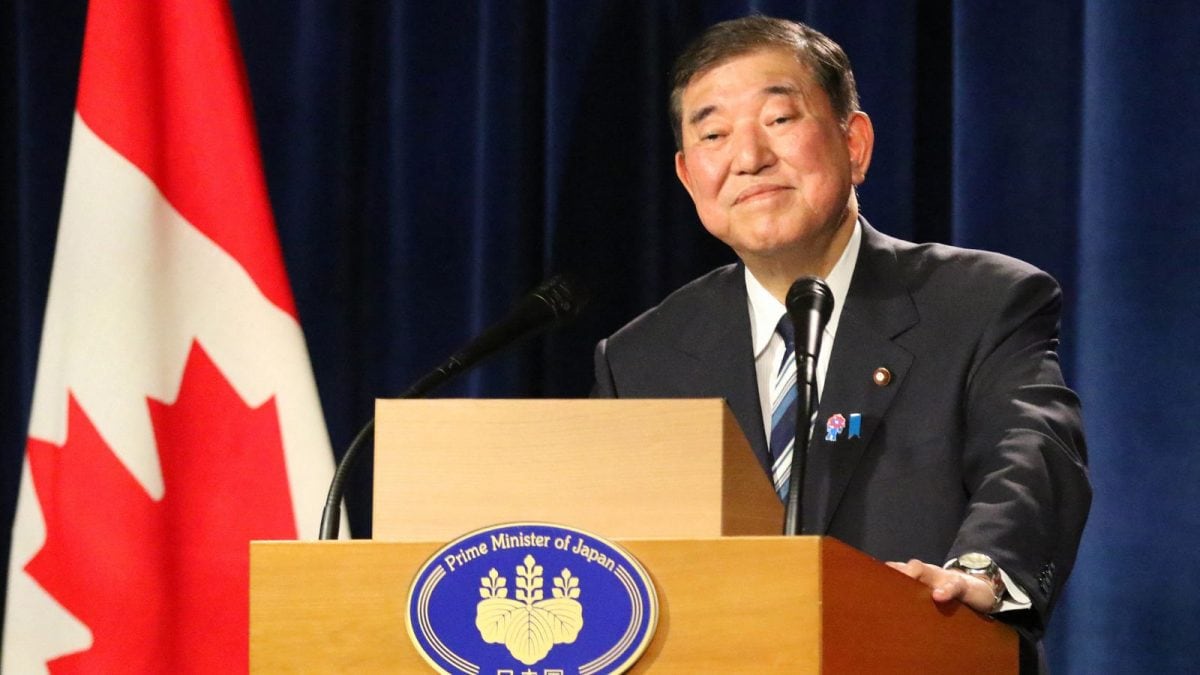ARTICLE AD BOX
Last Updated:July 02, 2025, 08:01 IST
In reference to the deportation of a Pakistani woman from Jammu and Kashmir, the Ministry of Home Affairs said the judiciary should not override executive decisions, per a report.

Jammu: Border Security Force (BSF) personnel stand guard near the last gate of the India-Pakistan International border (Photo: PTI)
More than a week after the Jammu and Kashmir High Court said that a Pakistani woman living in the Union Territory for years should have been protected from deportation during India’s retaliatory action, the Ministry of Home Affairs has said that courts must preserve the institutional boundaries necessary for effective governance, The Hindu reported.
According to the report, in a Letters Patent Appeal (LPA), the MHA also stated that the “judiciary should not override" the executive’s decision to deport a foreign national.
The Ministry said the High Court order was constitutionally impermissible and unsustainable, as it directed the enforcement of a judicial writ beyond the sovereign territory of India to Pakistan, where she was deported and was thus ultra vires, the report claimed.
“There exists no extradition treaty, legal instrument, or international obligation binding Pakistan to return her to India. The Indian government cannot, under existing international law, compel a sovereign nation to surrender a non-citizen," the report quoted the Ministry of Home Affairs as saying.
“Courts must preserve the institutional boundaries necessary for effective governance", and the order, if allowed to stand, would establish a dangerous precedent, the report quoted the MHA.
In the aftermath of the Pahalgam terror attack in April, the Union government had decided to suspend visa services to Pakistani nationals and directed them to leave India. After the deadline ended on April 27, the authorities deported several Pakistani nationals.
Several Pakistani women living with their husbands for a long time in Kashmir were deported by the authorities to Pakistan.
WHAT THE HIGH COURT HAD ORDERED
On June 24, the Jammu and Kashmir High Court said that a Pakistani woman living in Jammu and Kashmir for years, and having a long-term visa, should have been protected from deportation.
Justice Rahul Bharti issued the direction while hearing a writ petition (WP(C) No. 1072/2025) filed by Rashida’s husband, Sheikh Zahoor Ahmed.
The man challenged his wife’s deportation, arguing that she had been living in Jammu and Kashmir for years and held a long-term visa, which should have protected her from expulsion.
The court expressed deep concern over Rashida’s health and humanitarian situation, noting that she had no family or support in Pakistan.
Justice Bharti emphasised that “human rights are the most sacrosanct component of a human life" and said constitutional courts are sometimes compelled to act with “SOS-like indulgence" in exceptional circumstances.
“Without proper legal scrutiny or a formal deportation order, Rashida was expelled during what critics have described as a mass repatriation drive that failed to account for individual legal statuses", the High Court said.
The court noted that Rashida’s long-term visa may have made her ineligible for deportation and criticised authorities for acting without due process.
Later, the court directed the Ministry of Home Affairs to coordinate her return from Pakistan within 10 days and facilitate her reunion with her husband in Jammu.
A compliance report was to be submitted by July 1.
THE MHA’s APPEAL
According to the report, the MHA, in its LPA before the high court, stated that the woman’s long-term visa did not exist at the time of the deportation, as her request for its renewal in January this year was rejected.
Further, the Ministry said that while passing the order, the single judge “failed to appreciate the circumstances and the national security considerations and the reasonable apprehension posed by the Pakistani nationals staying in India on account of a war-like situation between India and Pakistan", per the report.
It added that the order is “contrary to the principles of judicial restraint in the matters concerning national security and international relations, particularly in dealing with the nationals of a hostile country."
It said the order was “based on the assumption that marriage to an Indian citizen entitles her to claim a right to reside in India or to have her deportation reopened."
The Ministry also stated that “it is a well-settled law that a foreign national does not acquire Indian nationality or legal residency rights solely by virtue of marriage."
“A foreigner does not possess a fundamental right to reside in India, and their entry and stay are subject to the regulatory control of the state under the Foreigners Act, 1946. Because it is a trite law that a foreign national does not enjoy rights guaranteed under Article 19. The only fundamental right available to a foreigner is under Article 21 of the Constitution of India, which does not confer any right to remain in India once a visa expires or is revoked," the report claimed.
The Ministry said the order would set a dangerous precedent and “may be cited by foreign nationals to invoke Article 226 for personal repatriation", and the outcome “threatens the integrity of constitutional separation and immigration enforcement alike," the report quoted.
ALSO READ | Quad Leaders Condemn Pahalgam Terror Attack, Call For Perpetrators To Be Brought To Justice

Vani Mehrotra is the Deputy News Editor at News18.com. She has nearly 10 years of experience in both national and international news and has previously worked on multiple desks.
Vani Mehrotra is the Deputy News Editor at News18.com. She has nearly 10 years of experience in both national and international news and has previously worked on multiple desks.
- Location :
- First Published:
News india 'Judiciary Should Not Override...': Home Ministry On Pakistani Woman's Deportation, Says Report



.png)
.png)
.png)
















 11 hours ago
6
11 hours ago
6








 English (US) ·
English (US) ·